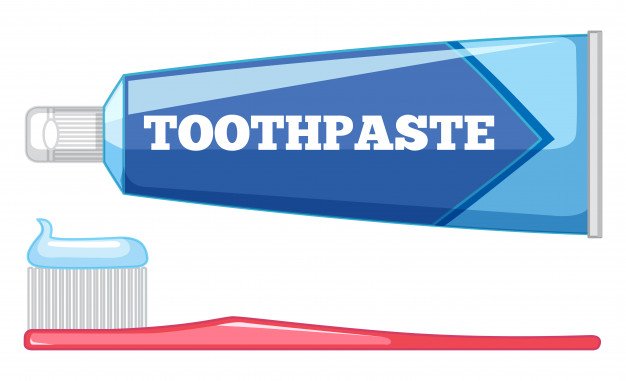Gum disease is a degenerative condition of the gums and soft tissues in the mouth. It may start undetected, but once gum disease has taken hold of tissues in your mouth, it can quickly become a condition that adversely affects the entire body.
Symptoms of gum disease:
Symptoms of gum disease generally don’t pop up until the advanced stage of the disease is in place. Signs that you need to seek dental intervention for gum disease include:
- Red, bleeding, or inflamed gums
- Bleeding while brushing, flossing, or eating hard foods
- Receding Gums
- Loose or separating teeth
- Persistent pain in the mouth
- Noticeable bad breath
- Pus in and around the gumline
- Open sores near the gumline
If you are experiencing any of the above symptoms it is essential that you contact your dentist to seek treatment for gum disease and to stop any further progression.
Knowing what signs to look for and what to do to prevent gum disease from taking hold will be essential in improving and treating your mouth, teeth, and gums. Here are some things you can do to treat and even prevent gum disease:
Brush those teeth!
It seems like such a simple thing to do, but it is fundamental to good oral health. Brush at least twice daily with a soft-bristle brush and fluoride toothpaste. Hold the toothbrush at a 45-degree angle against both teeth and gums, and move back and forth in a circular motion. Clean all surfaces of the tooth, and give attention to soft tissues in the mouth as well like gums, insides of cheeks, and the tongue. Bacteria can lurk anywhere in the mouth, and brushing is the best way to clear it all out.
Use the right toothpaste:
Not all kinds of toothpaste are created equal—when choosing a toothpaste, look for one that addresses your individual needs as well as provides additional protection against cavity formation. Look for the American Dental Association seal of approval, and make sure it contains cavity-fighting fluoride to keep teeth and gums healthy.
Floss, floss, floss!
While you may be an excellent brusher, there are just some places that brushes cannot go to clean teeth. This is where flossing comes in; flossing removes debris in and around the gumline and in between teeth, providing you with the most comprehensive clean possible. It is important to floss daily to keep teeth and gums at their healthiest. Establish a routine where flossing is a normal part of dental care; your mouth will thank you.
Rinse with care:
Many people rinse their mouths out after brushing, thinking that they are removing additional debris that may still be present. However, when you rinse with water, you end up removing valuable fluoride that is left over from brushing. Oral rinses should complement brushing practices; look for a rinse that contains fluoride and other protective elements that will strengthen teeth.
Choose the right mouthwash:
Choosing a mouthwash that contains therapeutic ingredients will help to protect surfaces of teeth as well as soft tissues of the mouth. A therapeutic mouthwash can reduce plaque and tartar buildup, reduce the likelihood of infections, and keep your breath fresh and inviting for hours. Mouthwash should never be a replacement for brushing and flossing, but rather a compliment that rounds out your oral care routine. Look for one that is ADA approved, and you’ll be good to go.
Get regular dental checkups:
Professional cleanings are the best way to remove plaque and tartar from the teeth. In addition, your dentist can proactively diagnose and treat any dental issues that come up before they rob you of your overall health. With regular visits, a dentist can identify early symptoms of gum disease and gingivitis, making these conditions much more treatable. Make a commitment to yourself and your health by scheduling professional dental cleanings at your Burbank Dentist at least twice a year.
Lay off the bad habits:
Drinking and smoking are habits that adversely affect your health as well as your mouth. Studies show that the use of tobacco and alcohol are more at risk of developing gum disease, gingivitis, and even oral cancers. Replacing these habits with some more health-conscious ones will ensure that you avoid the effects that these substances have on your mouth.
Another factor in the treatment and prevention of gum disease and gingivitis is nutrition. What a person chooses to eat and drink can directly affect the health of the mouth. Some food to include that promote oral health include:
- High fiber, water-rich fruits, and vegetables
- Black and green teas, which are known to reduce bacteria
- Dairy products such as milk, cheese, and yogurt
- Foods that contain fluorides, such as sea vegetables and water
- Sugar-free gum, which can promote saliva production
It is generally a good idea to avoid the following food and drink to promote good oral health:
- Carbonated sodas and sugary juices
- Alcohol
- Sticky and sugary candies and foods
- Starchy foods that can get stuck in teeth
- Acidic foods that can wear away the enamel on teeth
If your gums are red, inflamed, or bleeding, it is time to visit your dentist to get a professional assessment of your dental condition. Following these simple tips for proactive dental care will ensure that you achieve optimal dental health. Here’s to your brightest, healthiest smile!
Read Also:

























